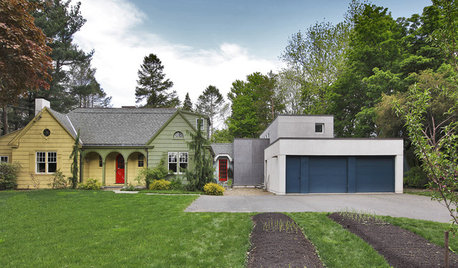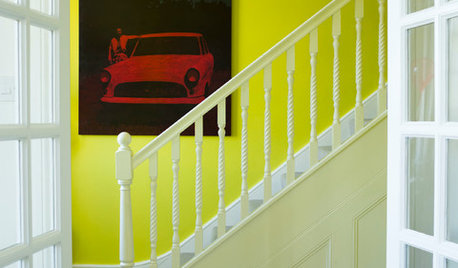East Coast spraying question
jerome
12 years ago
Related Stories

HOUZZ TOURSHouzz Tour: An East Coast Cottage Look in Los Angeles
Traditional Eastern Seaboard style takes root in a new LEED Gold home in Southern California
Full Story
MY HOUZZMy Houzz: Classic East Coast Style in Maryland
Collected vintage finds, clean furnishings and European touches are highlights of a couple's bright and airy 1923 house
Full Story
STUDIOS AND WORKSHOPSStudio Tour: Spaciousness Serves an East Coast Artist
A bold, modern studio addition to a traditional Connecticut home offers a sculptor enough room to let creativity run free
Full Story
GREEN DECORATING8 Questions to Help You See Through Green Hype
With the ecofriendly bandwagon picking up some dubious passengers, here's how to tell truly green products and services from the imposters
Full Story
GREEN BUILDINGConsidering Concrete Floors? 3 Green-Minded Questions to Ask
Learn what’s in your concrete and about sustainability to make a healthy choice for your home and the earth
Full Story
SELLING YOUR HOUSE15 Questions to Ask When Interviewing a Real Estate Agent
Here’s what you should find out before selecting an agent to sell your home
Full Story
CURB APPEAL7 Questions to Help You Pick the Right Front-Yard Fence
Get over the hurdle of choosing a fence design by considering your needs, your home’s architecture and more
Full Story
ECLECTIC HOMESHouzz Tour: Color and Light on the Sussex Coast
In England, bright accents and coastal light lift a rural Victorian interior redesigned for better flow
Full Story
HOUZZ TOURSHouzz Tour: Just What Mom Wanted, Off the Washington Coast
With an art studio, age-in-place features and a view-maximizing design, this home shows just how well the architect knows his client
Full Story
HOUZZ TOURSMy Houzz: A Relaxed Retro Feel on the Australian Coast
A spacious 1970s beach house gets a colorful retro makeover with vintage finds
Full Story







nastarana
mad_gallica (z5 Eastern NY)
Related Professionals
West Milford Landscape Architects & Landscape Designers · Rancho Cordova Landscape Architects & Landscape Designers · Salem Landscape Architects & Landscape Designers · White Oak Landscape Architects & Landscape Designers · Fort Wayne Landscape Contractors · Goodlettsville Landscape Contractors · Mercedes Landscape Contractors · New Providence Landscape Contractors · Pacifica Landscape Contractors · Parker Landscape Contractors · Plantation Landscape Contractors · Pleasanton Landscape Contractors · Raleigh Landscape Contractors · Waldorf Landscape Contractors · Washington Landscape Contractorsdiane_nj 6b/7a
olga_6b
jeromeOriginal Author
Krista_5NY
mikeber
barbarag_happy
buford
meredith_e Z7b, Piedmont of NC, 1000' elevation
Krista_5NY
olga_6b
michaelg
buford
karl_bapst_rosenut
seil zone 6b MI
buford
jeromeOriginal Author
michaelg
mad_gallica (z5 Eastern NY)
erasmus_gw
olga_6b
rosetom
buford
jeromeOriginal Author
henry_kuska
olga_6b
meredith_e Z7b, Piedmont of NC, 1000' elevation
kittymoonbeam